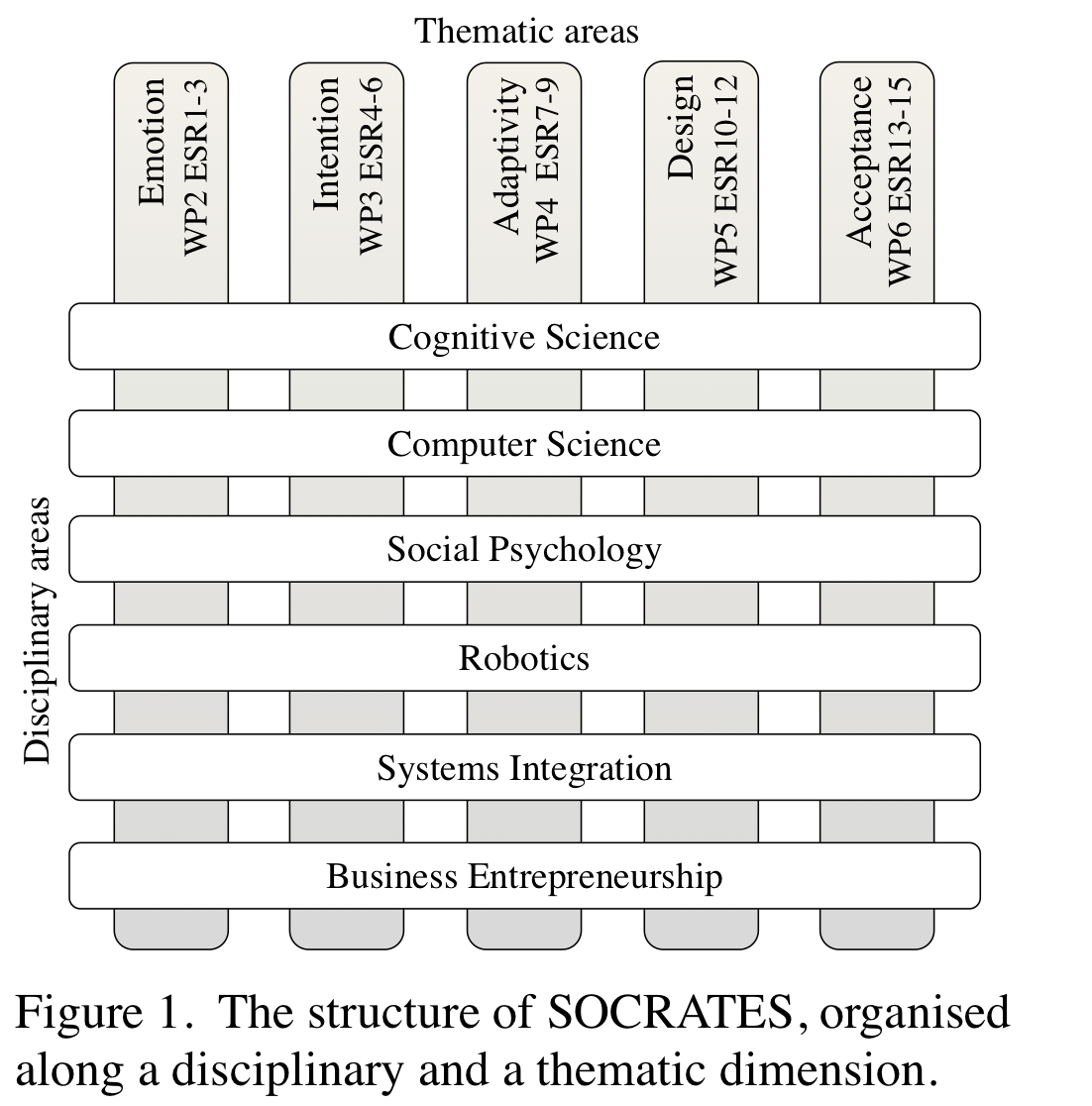 To address the aim of successful multidisciplinary and intersectoral training, SOCRATES training is structured along two dimensions: thematic areas and disciplinary areas. The thematic perspective encapsulates functional challenges that apply to R&D. The following five thematic areas are identified as particularly important, and hence are given special attention in the project: Emotion, Intention, Adaptivity, Design, and Acceptance. The disciplinary perspective encapsulates the necessity of inter/multi- disciplinary and intersectoral solutions. Figure 1 illustrates how the six disciplinary areas are required to address research tasks in the five thematic areas. For instance, to successfully address an interface design task in WP5, theory and practice from all disciplinary areas typically must be utilised and combined.
To address the aim of successful multidisciplinary and intersectoral training, SOCRATES training is structured along two dimensions: thematic areas and disciplinary areas. The thematic perspective encapsulates functional challenges that apply to R&D. The following five thematic areas are identified as particularly important, and hence are given special attention in the project: Emotion, Intention, Adaptivity, Design, and Acceptance. The disciplinary perspective encapsulates the necessity of inter/multi- disciplinary and intersectoral solutions. Figure 1 illustrates how the six disciplinary areas are required to address research tasks in the five thematic areas. For instance, to successfully address an interface design task in WP5, theory and practice from all disciplinary areas typically must be utilised and combined.
SOCRATES organises research in five work packages WP2-6, corresponding to the thematic areas Emotion, Intention, Adaptivity, Design, and Acceptance. More information on WP2-6 can be found in the RESEARCH menu above.